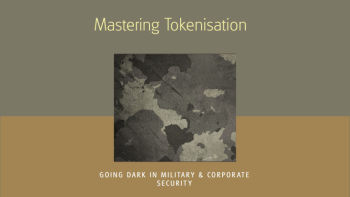GEOPOLITICAL NEWS: CYBER: We Must Remain vigilant against malicious technologies – UN on GEO´
Posted By GEO´ PRChannel Team
www.GEOPoliticalMatters.com
With over 4.6 billion internet users around the world, digital advances continue to revolutionize human life, but “we must remain vigilant” in the face of malicious technologies that “could imperil the security of future generations”, the head of the UN Office for Disarmament Affairs (ODA) told the Security Council on Tuesday.
“Digital technologies are increasingly straining existing legal, humanitarian and ethical norms, non-proliferation, international stability, and peace and security”, Izumi Nakamitsu warned the Estonian-led meeting, focused on peace and security in cyberspace.
Moreover, she continued, they are lowering access barriers and opening new potential domains for conflict – giving both State and non-State actors the ability to wage attacks, including across international borders.
Engagement by the Security Council on this issue is paramount – UN disarmament chief
Rising Cybercrime
By 2022, an estimated 28.5 billion networked devices will be connected to the internet, a significant increase from the 18 billion in 2017, according to the ODA chief.
From disinformation to deliberate network disruptions, in recent years there has been a dramatic jump in malicious incidents targeting information and communications technology (ICT) that diminish trust between States and threaten critical infrastructure that depends on it.
Ms. Nakamitsu recalled the Secretary-General’s concern over increasing cyberattacks on healthcare facilities during the COVOID pandemic, calling on the international community to do more to prevent and end them.
“Online violent extremism and trafficking have an often-overlooked differentiated impact on women, men and children, as do other ICT-related threats such as cyberstalking, intimate partner violence and the non-consensual dissemination of intimate information and images”, she said, citing this as the reason why “equal, full and effective participation” of both women and men in decision-making in the digital arena must be prioritized.
Fighting back
While ICT threats are on the rise, so too are efforts to address them.
For more than a decade expert groups at the government level have studied and made recommendations to address existing and emerging ICT dangers to international security, including confidence-building, capacity-building and cooperation measures while a so-called Open-ended Working Group has adopted “concrete, action-oriented recommendations”, the UN official said.
Meanwhile, regional organizations are also undertaking efforts, from implementing voluntary, non-binding norms on States to pioneering regional confidence-building measures or adopting regional tools to reduce ICT risks.
Everyone’s Battle
While the primary responsibility for international security lies with States, ICTs are an integral part of societies, and participants too have a role to play in securing cyberspace, the High Representative attested.
“Perspectives from the private sector, civil society and academia contribute a unique and important part of the collective solution to cybersecurity that the international community is seeking”.
Disarmament Agenda
Ms. Nakamitsu said the UN “stands ready to support States” and others in promoting a peaceful ICT environment, and cited the Secretary-General’s High-level Panel on Digital Cooperation https://www.un.org/en/sg-digital-cooperation-panel along with subsequent roundtable discussions that led to a Roadmap, which recommends actions for cooperation in the digital space.
The UN chief’s Agenda for Disarmament, addresses new generation technologies that pose challenges to “existing legal, humanitarian and ethical norms; non-proliferation; and peace and security”, she added.
The agenda calls for working with scientists, engineers and industry on technological innovation for peaceful purposes, and engaging with Member States to “foster a culture of accountability and adherence to emerging norms, rules and principles on responsible behaviour in cyberspace”.
Council’s Engagement ‘Paramount’
As the digital space has come to underpin most aspects of daily life, the scale and pervasiveness of ICT “insecurity” is a major concern, the Disarmament chief said.
She urged caution over assigning responsibility for ICT attacks, which could cause “significant consequences, including unintended armed responses and escalation”; States adopting “offensive postures” for hostile technology uses; and the development of “potentially destabilizing capabilities” by non-State armed and criminal groups, “with a high degree of impunity”.
“Engagement by the Security Council on this issue is paramount”, concluded the ODA official.









